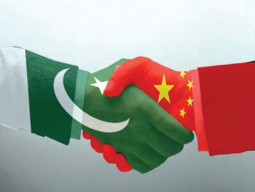
A day after Pakistan’s latest dollar-denominated Eurobond received a lukewarm response from international investors, Pakistan Tehreek-e-Insaaf (PTI) on Monday censured the government stating that the poor response was a virtual vote of no-confidence by global financial markets in its economic policies.
“The extremely poor response from the global markets to the euro bond offering by Pakistan shows that unfortunately the global investors remain unconvinced of the improved economy narrative that the government has been trying to sell,” senior PTI leader Asad Umer said in a statement on Monday.

Pakistan had on September 25 issued a $500 million Eurobond with a maturity of ten years in the international market at a coupon rate of 8.25%.
Umar said that this was the same price the government had managed to fetch last year when Pakistan re-entered the international bond market. With everything else remaining the same, Umar said that government should have priced the bonds lower since no re-entry premium had to be paid. Hence, the markets were essentially saying that things were getting worse.
By comparison, Umar said, countries like Kenya and Sri Lanka had fared far better than Pakistan. Kenya, which had issued its first ever bond last year had raised $1.5 billion at a yield of 6.875%, while Sri Lanka raised $650 million at a coupon rate of 6.125% just a few months ago, which was lower than what Pakistan will be paying.
The PTI leader said that the response of the international market was consistent with the extremely low level of foreign direct investment (FDI) Pakistan had been receiving in recent years, which had plummeted from $5 billion a few years ago to just $1 billion by fiscal year 2014-15. Additionally, Pakistan’s current account continues to run in deficit coupled with a drop in exports and a worsening energy crisis. He claimed that international firms, which were continuing to shun Pakistan as an investment destination, had seen no fundamental economic reforms taking place in the country.
Umar further criticized the economic policies of the incumbent government noting how consumers had been laden with high indirect and withholding taxes which had crushed their purchasing power.
“Whatever strength was left in the domestic businesses has come under severe attack with measures like the patently unfair and draconian eight per cent minimum tax on the services sector which is more than half of Pakistan’s economy,” the statement read.
“Reserves built up entirely on borrowings cannot provide the foundation for sustainable growth and shared prosperity, especially if the borrowing is being done at exorbitantly high levels of interest cost.”
He said that Pakistan’s ranking in the world economic forum global competitiveness index has dropped from 124th at the end of the Zardari era to 129th this year. The doing business report of the World Bank dropped Pakistan from 107th to 128th.
“The combination of this eroding competitiveness and the piling of exorbitantly expensive debt is sinking Pakistan further into a debt trap imperiling future generations of the country.”
Published in The Express Tribune, September 29th, 2015.

1725030039-0/Untitled-design-(2)1725030039-0-165x106.webp)




1732622842-0/Express-Tribune-(9)1732622842-0-270x192.webp)










COMMENTS (2)
Comments are moderated and generally will be posted if they are on-topic and not abusive.
For more information, please see our Comments FAQ